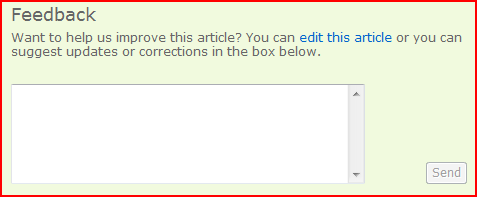If you’re reading this, you probably know what Wikipedia is, what Microsoft does, and what Digg is. If you also know what NewsVine is, you’ll appreciate this article a lot more, because it seems that the Wikipedia love/hate relationship might actually have a fix.
For those of you that don’t know, here’s the story in a nutshell:
Wikipedia is a huge online encyclopedia, written, edited, and modified by anyone that has internet access. As you can probably imagine, it has a lot of content, on a lot of topics. Nevertheless, the lack of real moderators or owners lead to “content battles” where users make changes to certain controversial items, and others change them back. Then there are the spammers and the trolls that just like to make everyone’s life more miserable. In the end you have an excellent idea that has issues, and isn’t the most reliable service (search has been broken for months now… I mean, an encyclopedia without an index!?).
Digg is the Wikipedia equivalent of a newspaper. Users submit stories they found on the web, other users rate the importance, and a series of compliacted algorithims come into play and (supposedly) the good stories make it to the front page. But “important” is a very relative term, and quite often inaccurate and trivial ‘news’ makes the homepage, and again, the trolls and spammers are plenty.
Newsvine took Digg to another level: it’s basically a user-submitted collection of stories that are approved by editors and then rated by users. It’s Digg with moderation and real editors, which generally means better content at the cost of some user-end liberties. As such, Newsvine has become quite a popular alternative (or complement?) to Digg, with an idea that worked well. And now it seems Microsoft wants to apply this method to a Wikipedia of their own.
It’s been a while since I went to MSN Encarta for information, ever since Wikipedia became what it is today. But with term papers due tomorrow (reason for the relative lack of activity recently), I’ve been getting my sources wherever I could find them. While researching for “Globalization” for my paper “Globalization and the Middle East,” I came across a link at the bottom of the page:

Clicking that link takes you to page (like this one) where you are presented the entire article in a WYSIWYG format, wherein you can make any changes that cross your mind, then submit.
The difference between this and Wikipedia is two-fold: first, Microsoft has paid researchers finding and publishing articles, which guarantees a steady stream of articles and valid information, and second, all changes made are first moderated by Microsoft staff to filter advertising, false information, or pure trolling/defacement of a site.
It is interesting to note several things on that page:
- It is much more end-user friendly, with a WYSIWYG design, contrasted Wikipedia’s forms where neither HTML nor standard BBcode is accepted, and entries must be formatted in their own cryptic way.
- There is a box for citing sources and links for further info that doesn’t require the editing of another section, making it simple and trouble-less to cite sources leading to more valid content, less conflicts over content, and more professional work.
- Summary of changes is required, though I’m certain MS has it’s own scripts that compare content and changes, this box might be seen as useless, but nevertheless, requiring someone to write what they did provides an extra, even if ultimately useless, form of spam protection.
What it all comes down to is, a shared initiative at making a user-driven encyclopedia but with certain editorial restrictions and content approval requirements, in a friendlier to use form, with the more important fields being made more readily available cannot be a bad idea.
While I have no idea what MS does on their end and how these changes are accepted, it is a good move nontheless, especially since even if Microsoft doesn’t win this game it might hopefully result in some badly needed changes at Wikipedia, and that is definitely good news.
At the same time, Encarta isn’t best known for it’s high quality articles (seen to be more student-centered than for professionals), and it certainly doesn’t have the crowd of fans (and fanboys) that circle Wikipedia and made it what it is today, but we can hope something good comes out of it, afterall, that’s why the edit button is there!
